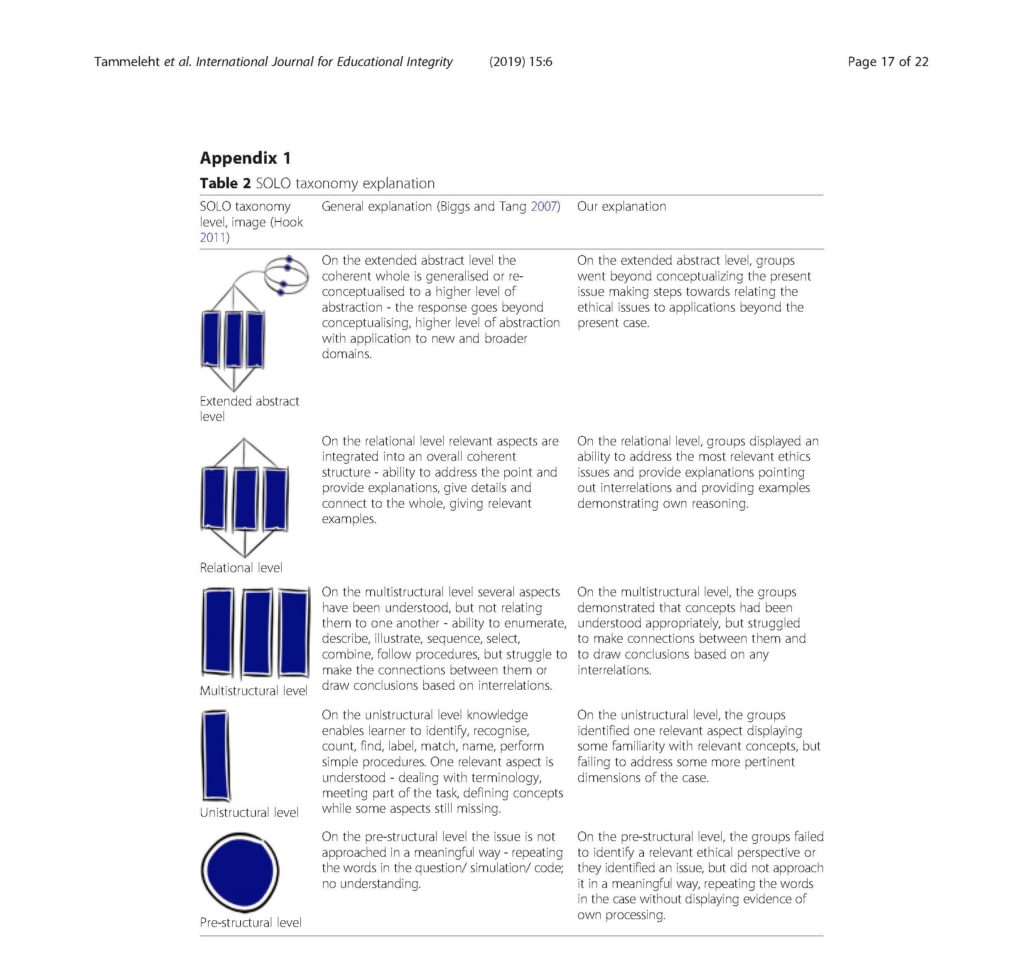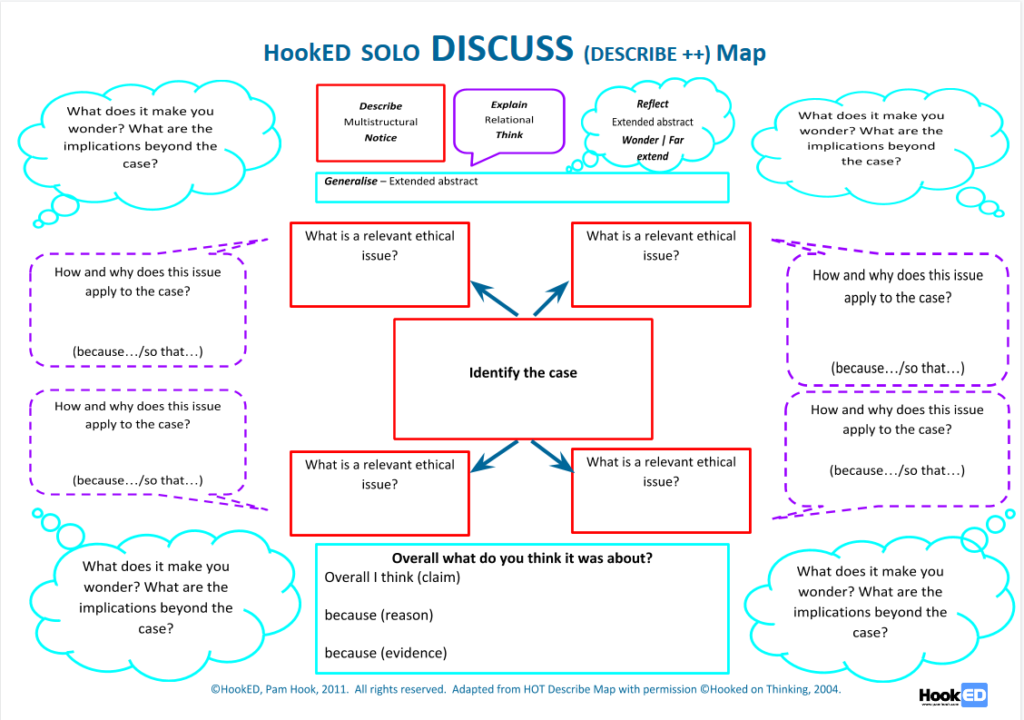I have been enjoying the ideas in a recent research article by Anu Tammeleht et al exploring the learning processes through which Estonian tertiary students (Bachelor, Masters and PhD) develop research ethics and integrity competencies.
The article explored the use of collaborative case-based explorations of ethical issues. The case studies are designed so that students collaborate to:
- Identify an ethical issue/s in the case study, to
- Relate the issue/s to the involved parties, and finally to,
- Consider possible actions to address the issue/s and their implications
It is clear that the tasks involved in unpacking the case study increase in cognitive complexity – moving from Identify – SOLO Uni or Multistructural Task, to relate – SOLO Relational Task and then to consider – a SOLO Extended Abstract Task
Two of the research questions raised in the article have special relevance for New Zealand primary and secondary teachers exploring digital citizenship and ethical issues (individual, sociological, economic, environmental, cultural etc) and when teachers facilitate a community of inquiry approach into various philosophical questions and issues.
The first question is framed around what does it look like?
RQ1. How is a students’ ethical sensitivity displayed during collaborative case-based learning?
The second is all about shift – progress from surface to deep understanding
RQ2. How does ethical reasoning evolve in terms of levels of understanding during collaborative case-based learning?
The topics explored in the case study would have to be adapted for the different contexts of our NZ curriculum learning areas but the analysis of the learning processes using SOLO Taxonomy would be very familiar to our teachers and transferable.
Refer to the SOLO Rubric developed by the researchers to determine progress in developing ethical understanding.
Also check out the Ethical Cases Assessment Grid (ECAG) described in the article – a new SOLO mediated tool for assessing student understanding and its progress during collaborative group work.
Why do I post this?
I intend to share this research article with the schools I work with so that we might develop a SOLO mediated collaborative case study approach for younger students.
Designing and supporting appropriate case studies will be fun and I suspect sharing the HookED SOLO Discuss (Describe ++) Map and Rubric with students would complement the question prompts used to help students explore the case studies.
Tammeleht, A., Rodriguez-Tríana, M. J., Koort, K and E. Löfström. (2019). Collaborative case-based learning process in research ethics. 15:6 International Journal for Educational Integrity. https://doi.org/10.1007/s40979-019-0043-3







{ 1 comment… read it below or add one }
good content